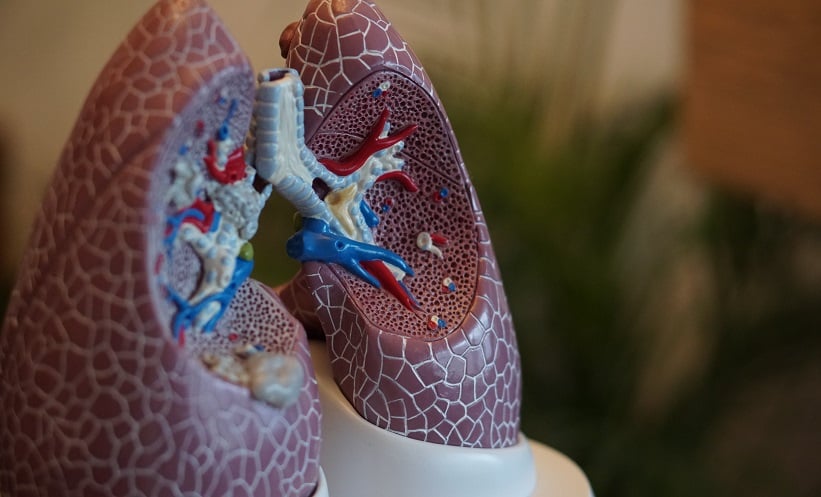INFECTIOUS diseases of the respiratory tract are a leading cause of morbidity and mortality worldwide. To date, more than 6.3 million people have died during the COVID-19 pandemic. Therefore, many research groups are currently focused on developing vaccine delivery via the respiratory mucosal route. Now, researchers from McMaster University, Hamilton, Canada, have confirmed that inhaled aerosol vaccines provide better protection and stronger immunity relative to intranasal sprays.
The team used the tuberculosis (TB) vaccine and compared the two delivery methods (intranasal versus endotracheal) by measuring potency, immunogenicity, and biodistribution in a murine model. Overall, endotracheal delivery caused a deeper and wider distribution of droplets in the lung. This was associated with enhanced vaccine-mediated immunogenicity and protection against the target pathogen, namely TB.
Co-author Matthew Miller, Canada Research Chair in Viral Pandemics at McMaster University, explained the mechanism behind these observations: “The immune response you generate when you deliver the vaccine deep into the lung is much stronger than when you only deposit that material in the nose and throat because of the anatomy and nature of the tissue and the immune cells that are available to respond are very different.”
The wider relevance of the findings was summarised by co-investigator Zhou Xing, a professor at the McMaster Immunology Research Centre and Department of Medicine, Hamilton, Canada: “This study for the first time provides strong preclinical evidence to support the development of inhaled aerosol delivery over nasal spray for human vaccination against respiratory infections including TB, COVID-19, and influenza.”
The inhaled aerosol vaccine is currently being evaluated in Phase I clinical trial that enrolled healthy adults who have previously received two or three doses of an injected COVID-19 mRNA vaccine.
There are several advantages to inhaled vaccines. Not only are they needle-free and painless, but they can also achieve maximum protective efficacy with smaller doses than injected vaccines. Interestingly, although nasal mist influenza vaccines are highly effective in children, they are less effective in adults. Consequently, injectable vaccines remain the most popular choice for seasonal influenza vaccinations in this population.








